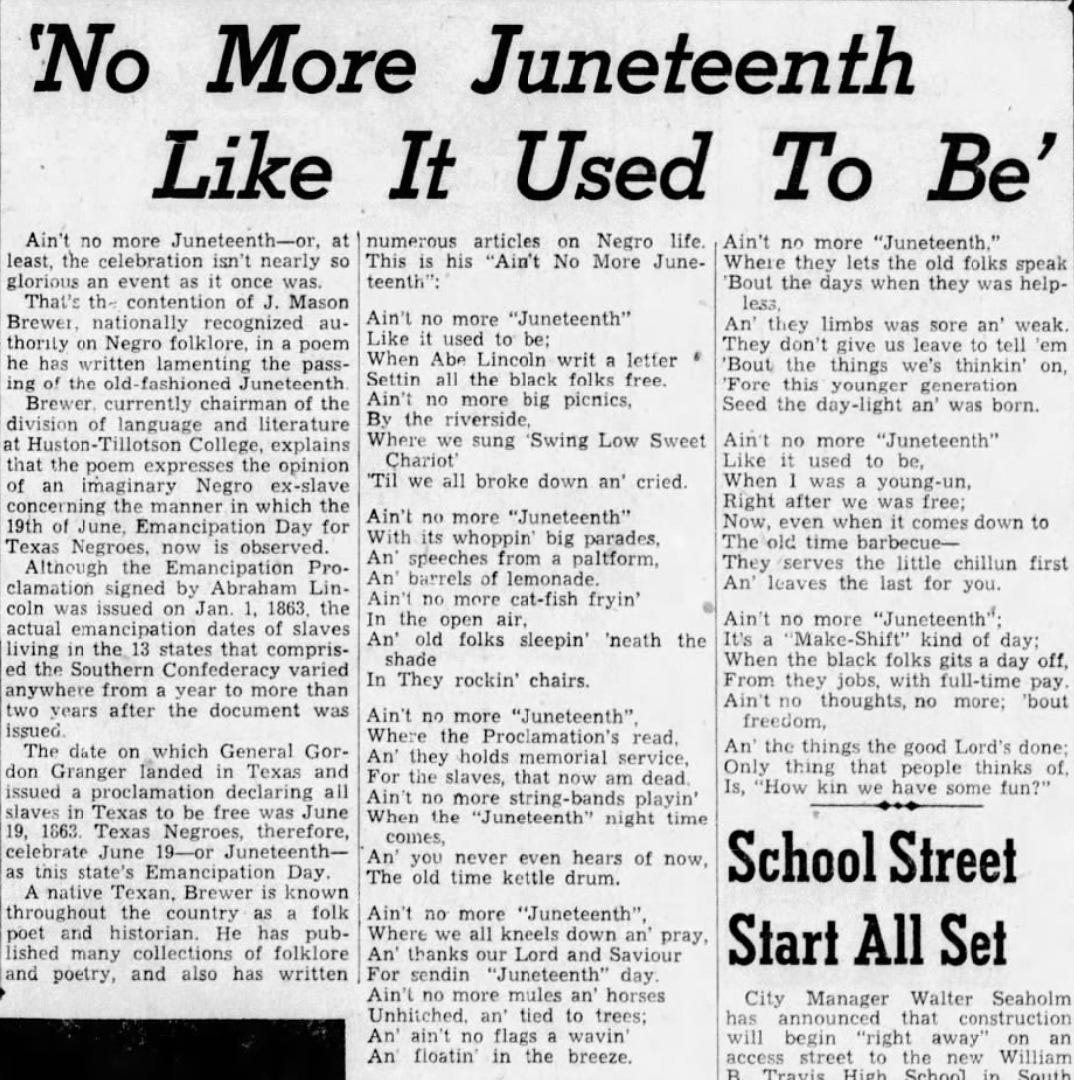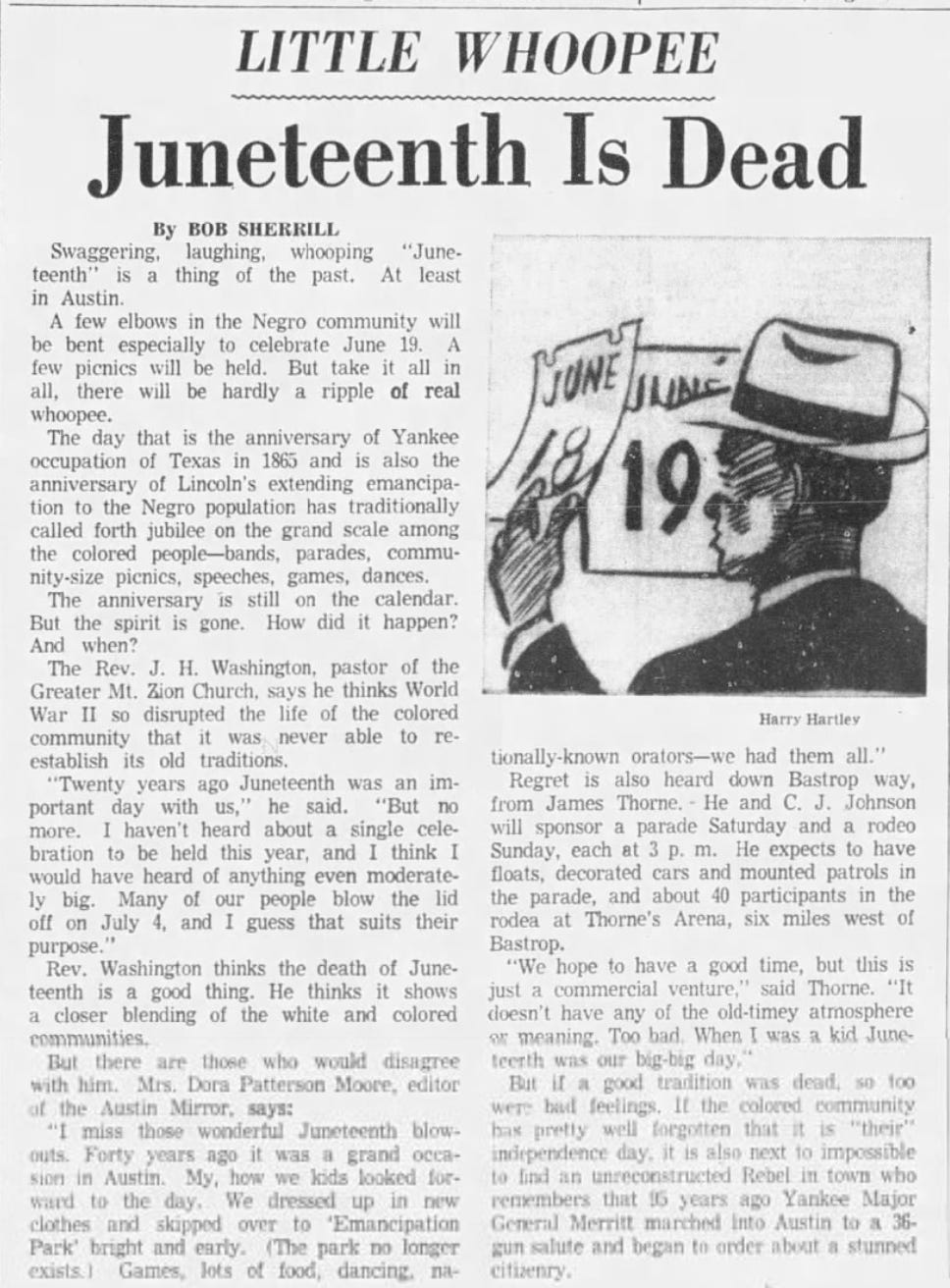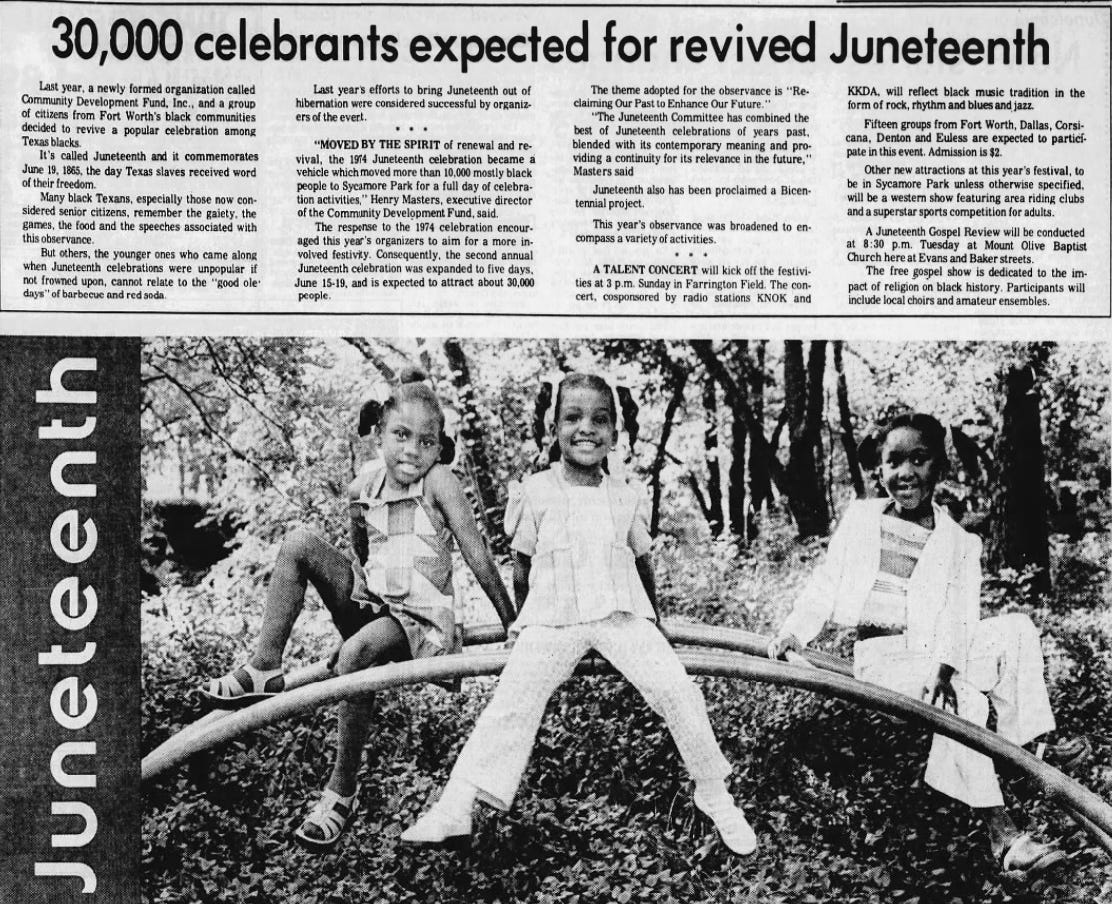There’s so much terrific work out right now from nineteenth-century American historians on Juneteenth, I’m not even sure where to begin. Annette Gordon Reed’s book On Juneteenth is a terrific (and short) read, but if you’re looking for something even more recent try Tiya Miles’ piece in the New York Times today.
I’m not remotely the expert they are on the holiday and the history behind it, but as someone who works on the twentieth-century South, I’ve been a bit surprised at the sudden resurgence of Juneteenth — especially its recent elevation to a federal holiday — because in the post-WWII era, which I work on, most of the discussion about Juneteenth in those decades was about how the holiday was dying out, if not dead.
Here’s a piece from the Austin-American Statesman in 1953, with a poem by the African-American folklorist and Texan J. Mason Brewer:
Here’s an even bleaker assessment from the same paper, seven years later:
Though you might assume that Juneteenth celebrations would have picked up speed with the rise of the modern civil rights struggle in the 1950s and 1960s — with a commemoration of freedoms won in the past fueling the drive for freedom in the present — the opposite was apparently true.
Some, as you can see in the piece above, regarded Juneteenth as an obstacle to the spirit of integration. Others groused, in a perennial complaint, that Juneteenth had gotten too commercial. And still others, I suspect, saw it as old-fashioned. (Given the generational divides in the civil rights struggle, younger activists would’ve associated Juneteenth with the older generation they were bristling against.)
But as with many traditions, what one generation cast off was rediscovered by the next. By the mid-1970s, with cultural nationalism on the rise, Juneteenth was re-emerging, as this 1975 piece in the Fort Worth Star-Telegram notes:
Now that Juneteenth is firmly fixed on the calendar as a federal holiday, it seems sure to stay in the spotlight. There are, and will continue to be, debates about whether it’s a day of celebration (as it had traditionally been) or a day of solemn dedication (as some argue these days).
But those kinds of debates are central to our civic holidays, and just as we use the Fourth of July to simultaneously celebrate and interrogate the status of American freedoms writ large, I think we might well do the same with Juneteenth for the freedoms of African Americans, past, present and future.







I grew up many years ago in the Northeast and never once in my life heard of Juneteenth, till I moved to D.C. in the early 80s. Even then, it didn't really seem much of a thing even with Black co-workers and friends. So I was amazed when it "all of a sudden" (to me) became a federal holiday. It should be celebrated, what an event it was!